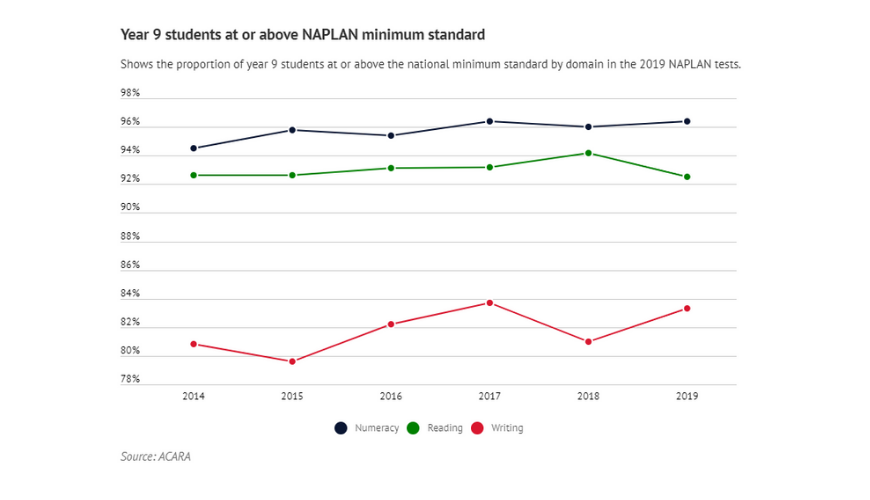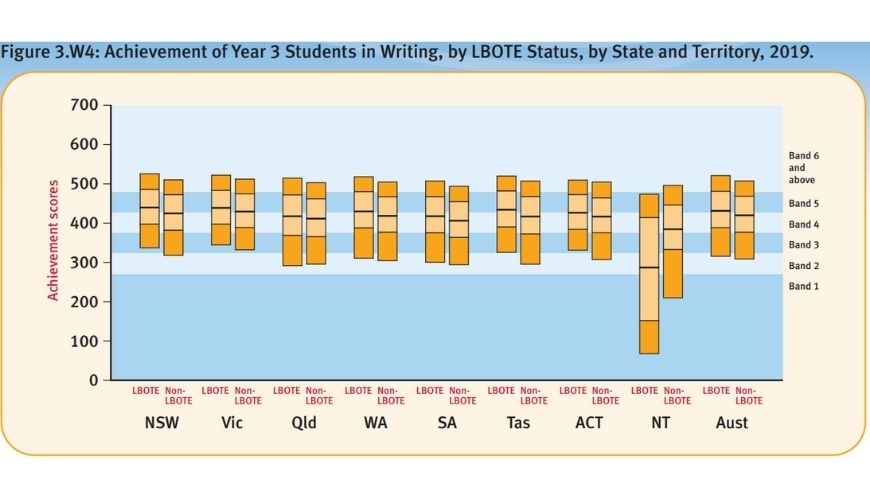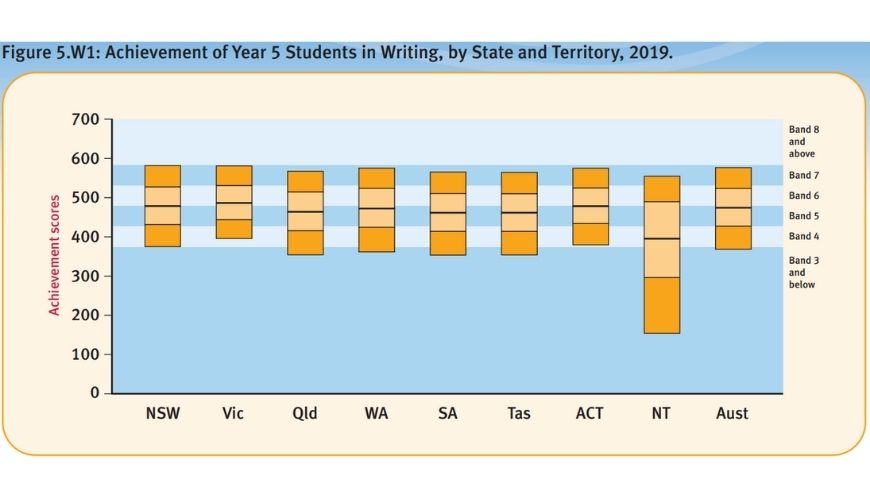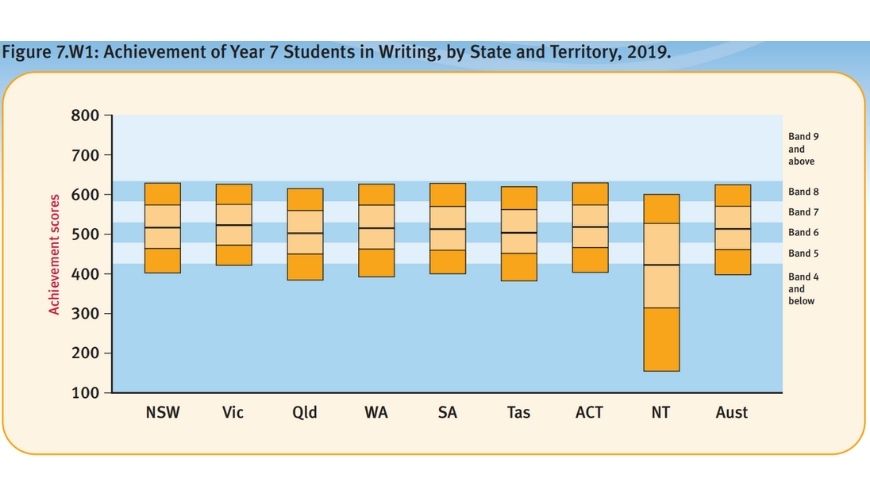Welcome to Matrix Education
To ensure we are showing you the most relevant content, please select your location below.
Select a year to see courses
Learn online or on-campus during the term or school holidays
Learn online or on-campus during the term or school holidays
Learn online or on-campus during the term or school holidays
Learn online or on-campus during the term or school holidays
Learn online or on-campus during the term or school holidays
Learn online or on-campus during the term or school holidays
Learn online or on-campus during the term or school holidays
Get HSC Trial exam ready in just a week
Get HSC exam ready in just a week
Select a year to see available courses
Science guides to help you get ahead
Science guides to help you get ahead
Falling English skills are in the headlines again. In this article, we look at why and offer five tips to help your child build strong skills to beat the literacy decline.

Join 75,893 students who already have a head start.
"*" indicates required fields
Related courses

Join 8000+ students each term who already have a head start on their school academic journey.
If you read the paper, you’ll have noticed recent headlines declaring a writing decline and a literacy crisis. This isn’t a new phenomenon, it has been an ongoing problem in Australia for some time. In this article, we’re going to discuss the issue, the data around it, and how you can help your child avoid falling into it!
Over the past few years, NAPLAN results have illustrated a consistent fall in the reading and writing skills of students across the country. While NAPLAN shows consistent improvement in numeracy results for students in NSW, and across the nation, from 2008-2019, reading and writing skills have declined.
Reading levels have fallen to a point where only about 94% of students meet or exceed the minimum standard (the minimum attainment for students to reach the next stage of education) as set by NAPLAN. This may sound high, but remember this is only for the minimum standard – essentially, functional literacy.

To put things in context, over the same period, writing ability consistently sits at around 80-83% and is significantly lower than it was in 2011. NESA recently completed a review into the writing ability of NSW, and while it hasn’t been made publicly available, the Sydney Morning Herald is reporting that,
Year 9 students in NSW in 2019 were the equivalent of five months behind the level of Year 9 students in 2011. On average, one in six of those students was below the minimum standard required to succeed in their final years of school. That compared with one in 20 below the standard in reading and in numeracy.
What this means is that writing ability has declined by 11% over the past decade. That’s significant. But it doesn’t show the full story, which needs us to think about what the minimum standards for reading and writing actually are.
ACARA manages this through the National Assessment Program, you will know it as NAPLAN. While there is a significant amount of debate about the effectiveness of standardised testing and its flaws, NAPLAN is useful for gleaning a sense of the trends of actual student learning and ability. Because this testing is standardised, it allows assessors to see how students rate against one another.
NAPLAN is the standardised test used to assess literacy and numeracy in Australia. It is used to see how students from different states perform against one another and past cohorts of students. NAPLAN has minimum standards set for each year that is assessed – 3, 5, 7, and 9.
The minimum standard for NAPLAN is just that, a standard set by NAPLAN that denotes the minimum skill level for students to be able to progress from one academic stage to the next. Students meeting the minimum standard should be seen as meeting expectation, not a cause for celebration.
Below are some of the criteria used by NAP to describe the minimum standards for years 3,5,7, and 9:
“Students typically choose mostly simple verbs, adverbs, adjectives and nouns. They may include a few examples of precise words and produce some correctly formed sentences. Students use some capital letters and full stops correctly and correctly spell most of the simple words they choose to use in their writing.”

“When writing to either task, students typically correctly structure most simple and compound sentences and generally use some correct links between sentences. Most referring words are accurate. Students typically correctly punctuate some sentences with both capital letters and full stops… Students correctly spell the most simple and common words.”

“Students correctly structure most simple and compound sentences and some complex sentences and correctly punctuate some sentences with both capital letters and full stops. They may demonstrate correct use of some other punctuation, for example, quotation marks for direct speech or commas for phrasing.”

“Students typically use accurate words or groups of words when describing events and ideas although there are typically errors evident in sentence construction. The writing often uses a small range of connectives and conjunctions to link text sections and sentences correctly.
Students punctuate most sentences correctly with capitals, full stops, exclamation marks and question marks. Students correctly use more complex punctuation marks some of the time.”
NAPLAN reporting graph for Year 9 writing skills. Source: 2019 NAPLAN ReportAs you can see, the bar is not set particularly high for student literacy and this makes the decline in ability very concerning. This decline in writing and reading ability can negatively impact children throughout their adult lives affecting pathways to education, levels of attainment, and the jobs they can secure.
Primary and High School literacy levels can shape incomes and quality of life in adulthood for some. According to the ABS, adults without non-school qualifications earn around $820/week compared to around $1600/week for undergraduate level education and $1342 /week for a postgraduate level education. This is a significant earning disparity. What’s most disturbing is that this earning outcome can be set into motion before a child leaves primary school.
There is no single cause for the decline in literacy in Australia. Instead, it has many factors.
Political factors, education funding, teacher training and workplace support, teacher resources, and blame placing have all contributed to the decline.
As part of the recent writing review, NESA commissioned a survey of recent teaching graduates. The Sydney Morning Herald reported that,
“Almost half of NSW teachers – including two in five high school English teachers – say they were poorly trained to teach writing, and a quarter devote less than an hour a fortnight of class time to it. Two-thirds said they were either minimally or not prepared at all to teach grammar, punctuation, spelling, paragraphing and sentence structure, or for marking and giving students feedback on writing.”
To be clear, this report does not place blame at the feet of school teachers, but the institutions preparing them and the support given to them.
But that only tells part of the story. A child’s literacy is also connected to their reading habits. Students who read regularly and widely are consistently shown to perform higher in tests like NAPLAN. This isn’t a practice learned or developed at school but in the home.
Want your child to start acing high school English?
Expert teachers. Excellent resources. Proven results. Help your child boost their English marks.
Studies have consistently shown a connection between device use and literacy ability in children. In a report commissioned by ABC’s Four Corners,
“Robyn Ewing, a Professor of Teacher Education at the University of Sydney, said this was having a tangible impact on vocabulary and literacy.
“Children who have been sat in front of a screen from a very early age start school with thousands and thousands of words less, vocabulary-wise, than those who have been meaningfully communicated with,” “
Furthermore, the growing prevalence and use of digital devices alarms educators, researchers, and parents. The Gonski Foundation released the first phase of the Growing Up Digital Australia report. While this report discusses the benefits that digital technology offers students and young people it extensively catalogues concerns with detrimental effects of technology on literacy.
One of the report’s important insights is that “Several cross-sectional and longitudinal studies have provided concerning results, linking excessive screen time with developmental difficulties including cognitive delays and poorer academic performance, even well into adulthood.”
The general consensus amongst the educators surveyed for this report is that, of
the particular attributes they have observed in the last 3-5 years, it is overwhelmingly evident that on all indicators, that children’s learning is suffering. For example, 78% of students’ ability to focus on educational tasks has decreased, according to Australian educators.
UCLA professor Maryanne Wolf has noted that readers who use digital mediums skim more than read. And that, furthermore, “Results indicated that students who read on print were superior in their comprehension to screen-reading peers, particularly in their ability to sequence detail and reconstruct the plot in chronological order.”
But it needn’t all be doom and gllo. There are things you, as an engaged and involved parent, can do. Let’s have a look.
While the reports may be grim, that doesn’t mean that you can’t help your child avoid the pitfalls discussed above.
Mobile phones have become essential for us to stay in touch with our children. They’ve also become great tools for accessing information instantly. But they are also distractions that (as we saw above) can have a negative effect on children’s development.
For children aged 5 -17, children shouldn’t have more than 2-hours sedentary screen time in a day. This means that if your child is exceeding these, you need to set some boundaries and limits.
Encouraging your child to read and reading with them is the biggest single thing you can do to improve their literacy!
Reading with your child, or even to your child, encourages them to make reading a habit.
Reading habits help children to improve comprehension, grammar knowledge, and writing ability by seeing how others write. Matrix courses for year 7 and 8 students focus on getting students to read a wide selection of texts in different genres to help encourage students to read. We have consistently seen students’ literacy improve as they read more and these develops are reflected in their school marks.
A consistent reading practice is only part of the secret to improve your child’s literacy and avoiding the literacy decline. Writing is another equally important habit to develop.
As we saw earlier, students’ writing ability is declining across the country. Largely this is because students aren’t writing as much as they need to. Writing is an actively learned skill, this is why we call it a craft!
We get better at writing by engaging in it regularly!
Don’t say, “This is bad because…” Say, “If you did this, it would be even better!”
Writing regularly is important, but so is writing CORRECTLY!
It is important that students learn the rules of grammar. At Matrix, our English teachers are experts at helping students write concisely and correctly. All of our students are assessed on the quality of writing in their assessments and given consistent practical advice on how to stop making those common grammatical errors.
Unfortunately, English grammar is difficult and irregular. It often feels like English has just as many exceptions to rules as there are rules! If you struggle with the rules of English Grammar, our Essential Guide to English Grammar will help parents like you,too, as well as being an invaluable resource for students.
Writing doesn’t improve in a vacuum, it requires input from others. All successful writers and journalists gain feedback from colleagues, peers, friends, and family to make their work better. To help your child improve, it is important that you encourage them to seek feedback from others. Matrix students receive consistent practical feedback on their writing from their Matrix English teachers.
Once students receive feedback, it is important to understand that negative criticism isn’t about them. rather, it is about making a piece of work better for their readers. A good way to encourage this is to frame writing as being for others, rather than themselves.
We are very proud of the Matrix website and the many great resources for parents we’ve produced to help you help your children. If you want to help your child improve their English skills, you should read:
| Year 6 Students | Year 7 and 8 Students |
Equipping your child with strong literacy skills in the first year of High School sets them up for success. Find out how we will help.
Written by Matrix English Team
The Matrix English Team are tutors and teachers with a passion for English and a dedication to seeing Matrix Students achieving their academic goals.© Matrix Education and www.matrix.edu.au, 2025. Unauthorised use and/or duplication of this material without express and written permission from this site’s author and/or owner is strictly prohibited. Excerpts and links may be used, provided that full and clear credit is given to Matrix Education and www.matrix.edu.au with appropriate and specific direction to the original content.